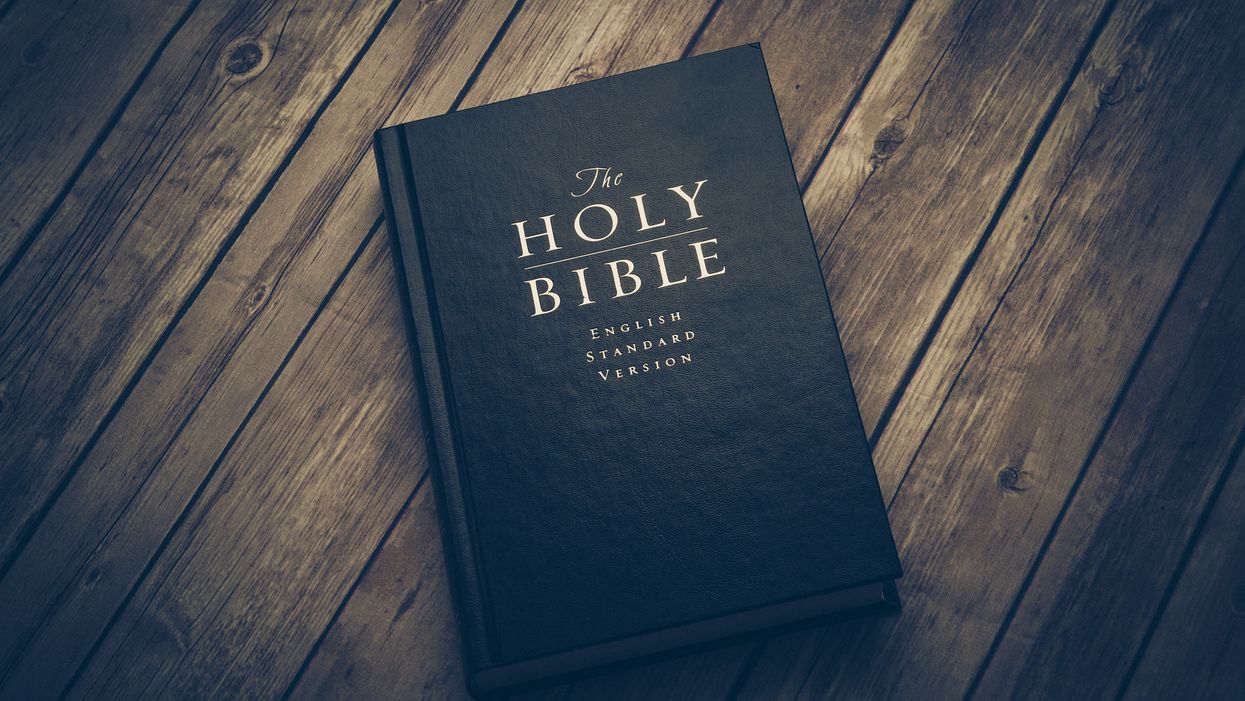
Image source: Getty Creative

Trump was criticized last week for signing Bibles in Alabama
President Donald Trump incited outrage last week after he signed the covers of several Bibles brought to him by supporters in Alabama. Trump was there touring storm damage after tornados ravaged the deep south last week.
According to local reporting, as Trump met with residents inside a local church, supporters requested he sign their personal items. While most items were typical memorabilia like hats, some requested Trump sign their Bibles — and he obliged, by writing his signature on the front cover with a sharpie.
As with anything relating to Trump, this turned out to highly controversial. Many rebuked the president for signing the Bibles — especially on the front cover — alleging his actions were deeply offensive. Others, however, did not think Trump's actions warranted the outrage they generated. After all, Trump was in Alabama to comfort storm victims, including families who had just lost loved ones.
Indeed, even Christian leaders were torn on Trump's actions. One pastor in North Dakota characterized Trump signing the front cover as a "desecration of the holy book." Others said it would have been unkind of Trump to reject the Bibles given the circumstances of his visit.
But I contend that criticism should not fall necessarily on Trump's shoulders — but instead on those who sought Trump's signature.
After soaking in the faux Trump outrage, I asked myself one question: Would the Apostle Paul — a Roman citizen and zealous Jew who was tasked with bringing the Good News about Jesus to the Gentile world — have asked Caesar to sign his Bible (Or more historically accurate, one of his Hebrew Bible scrolls)?
The answer that anyone with a cursory survey of the Bible and ancient Near East culture would arrive to is a resounding NO.
First, Paul — both as a zealous Jew and as a Christian — would have viewed Rome as the modern-day Babylon, a biblical archetype for human kingdoms diametrically opposed to the Kingdom of Heaven. The goals of Rome were to advance "good" so long as it benefitted Caesar. Paul, however, submitted himself to the definition of good defined only by God.
Second, in Rome — just like in Babylon — power was expressed through violence. For the powerful to thrive, others would have to die. However, in the Kingdom of God, true power is expressed by relinquishing status and influence through self-sacrificial love. Jesus demonstrated this on the cross and Paul did so by remaining alive for the benefit of Gentile nations (Philippians 1).
Third, for Paul, King Jesus is Lord over all. This meant that Paul sought to bring every aspect of his life under the lordship of Jesus, and for anything that contradicted the teachings of Jesus, Paul quickly cut it from his life. Paul refused to align himself with the goals of Rome, which would have required him to pledge an allegiance to Caesar. His only allegiance was to Jesus, and to the mission for which he was called.
Living in the Roman Empire certainly aided the spread of early Christianity, thanks due in part to pax romana. But at every step of the way it's clear that Rome, and Caesar, embodied everything Jesus taught against. And while Rome was not necessarily the enemy per se, (Jesus and Paul, among others, would argue the true war was and is against the dark, evil spiritual forces, not human flesh and blood) Rome, just like all other kingdoms before it, was inherently corrupt and in rebellion against God.
So would Paul have asked Caesar to sign his Bible scroll? Never.